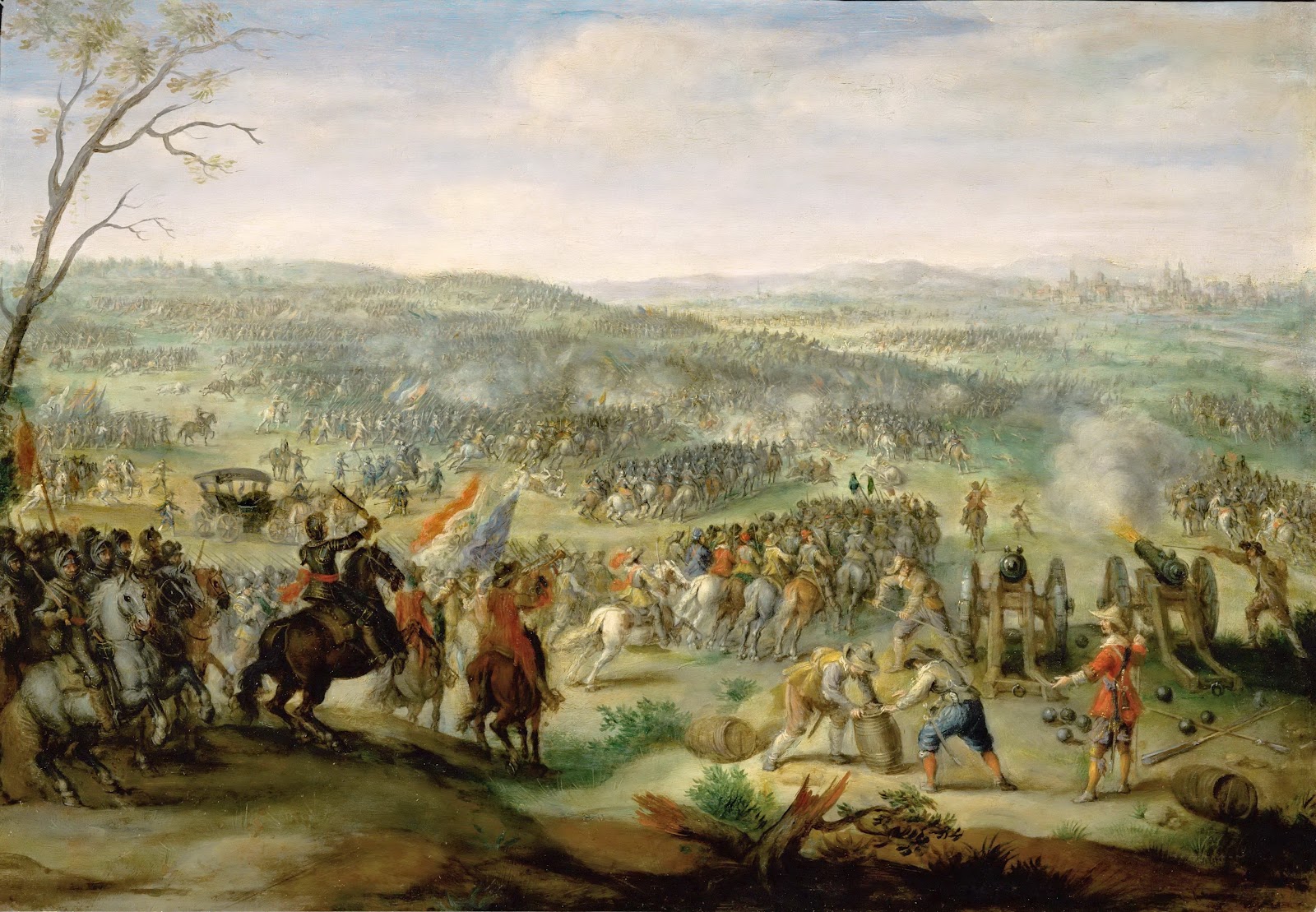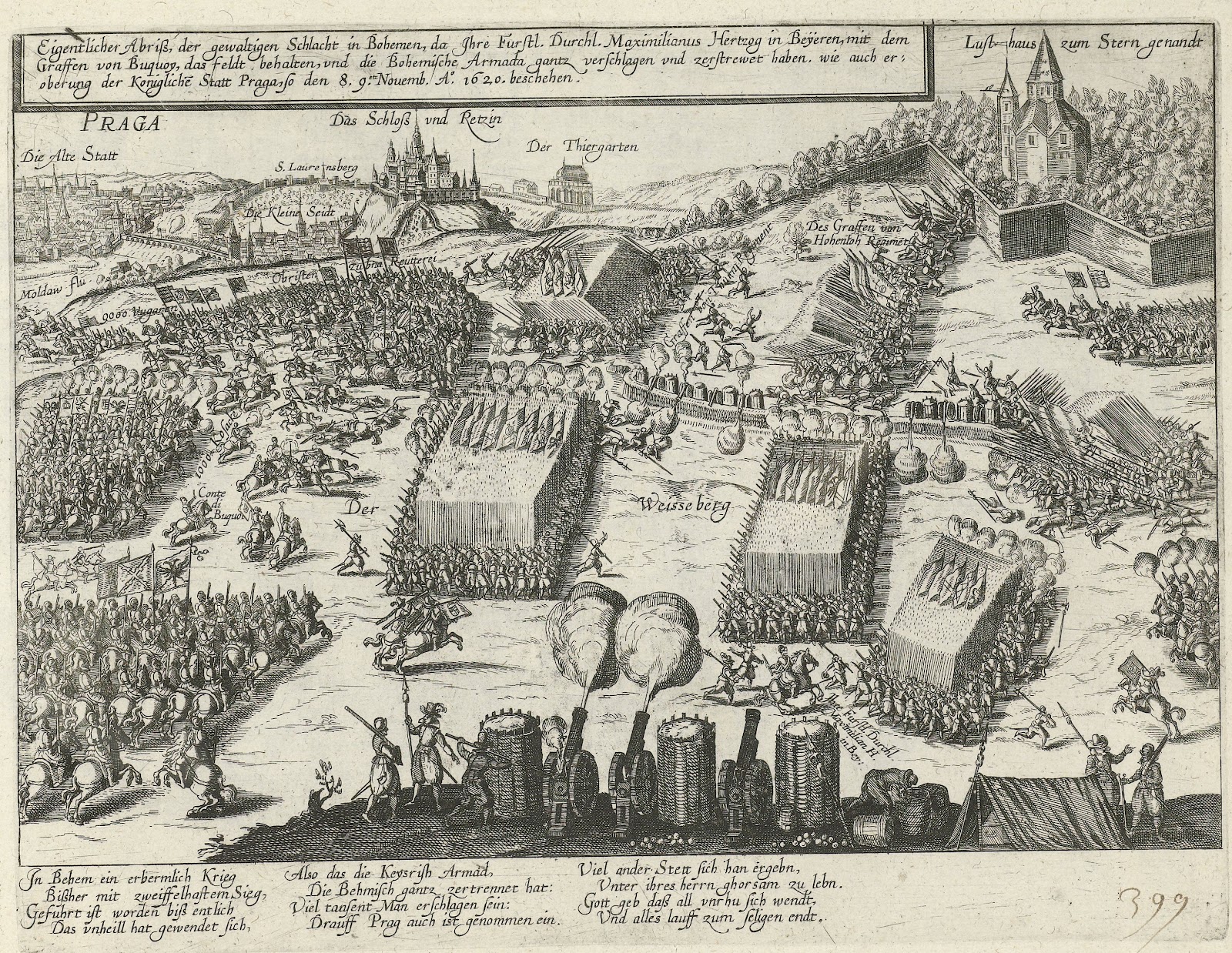Salvete Omnes,
..
on this day in November 1620 AD at White Mountain ( Bitva na Bílé hoře) Bohemian Protestant royal army aided by the Hungarian forces, commanded by Jindrich Matyas Thurn and Christian I, Prince of Anhalt-Bernburg, was defeated by the combined Catholic armies of Imperial forces, commanded marshal de Tilly and the Catholic League under Count of Bucquoy.
 |
| Perhaps our Polish Lisowczyks |
There was also a 1,500 riders-strong mercenary contingent of Polish cavalry known as the Lisowczyks (Lisowski kozaks/cossacks as Polish light cavalry originated during the Polish-Muscovy War). There were also Croats and Imperial Hungarian on the side of the Catholic army.
 |
| imperial and League forces, the Polish contingent is on the bottom right |
..
it was a very short battle considering the size of the armies and the seriousness of the struggle - the actual battle lasted more or less 1 hour, and more or less 2,000-4000 men were killed on the Protestant side and perhaps the same number on the Catholic side - the losing side also sustained 2000-5000 men prisoner out of 28,000. But actual losses are uncertain. It is certain that the Protestant army was defeated and routed and in pursuit, in which the Poles, Croats and Imperial Hungarian excelled.
The battle was followed by steady collapse of the Protestant struggle and armed opposition within Czechia proper, while the contingent of the Protestant army were withdrawing, bleeding men and equipment, to the north into Silesia (part of the Bohemian Crown) and German states to the north-west or even further to the Dutch Republic. The war was far from over and would last for 28 years more, but the very heart of it, the Bohemian Crown, was finished.
The most serious social and political outcome of this battle would result in the total destruction of the Protestant Czechia, especially the Protestant aristocracy and upper levels of the other parts of society, during the subsequent months and years of the XXX Years War and further anti-Czech policies of the Imperial politicians. Czech language and culture would begin its revival in the late XVIII century in a complete different set of circumstances.
 |
| Snayers' vision of the battle |
. Polish cavalrymen delegation led by captains Stanislaw Strojnowski and Wojciech Sulimirski, presented to their commander-in-chief the captured flags: 38 Hungarian colors, 5 infantry banners or colors and 9 cavalry standards.
Perhaps worth noting is the taking of the capital - Prague.
On Nov 9, 1621 the imperial & League forces entered undefended Prague, while on the 10th the soldiers of the Royal Castle surrendered to Count Bucquoy . What followed was the great pillage and mayhem of the Bohemian Crown capital.
For example Maximilian of Bavaria, commanding his Bavarian contingent, had 1500 wagons of loot carried for his pleasure and onwerhsip, but when the unruly Imeperial soldateska continued looting and pillaging within the city and its environs Maximillian asked commander-in-chief Bucquoy to stop the lawless pillage by the soldiers. But the war being war and the scoundrels and mercenaries alwyas hungry the pillage lasted for some time, our Lisowski kozaks not being the worst among the victorious soldateska.
Valete




No comments:
Post a Comment